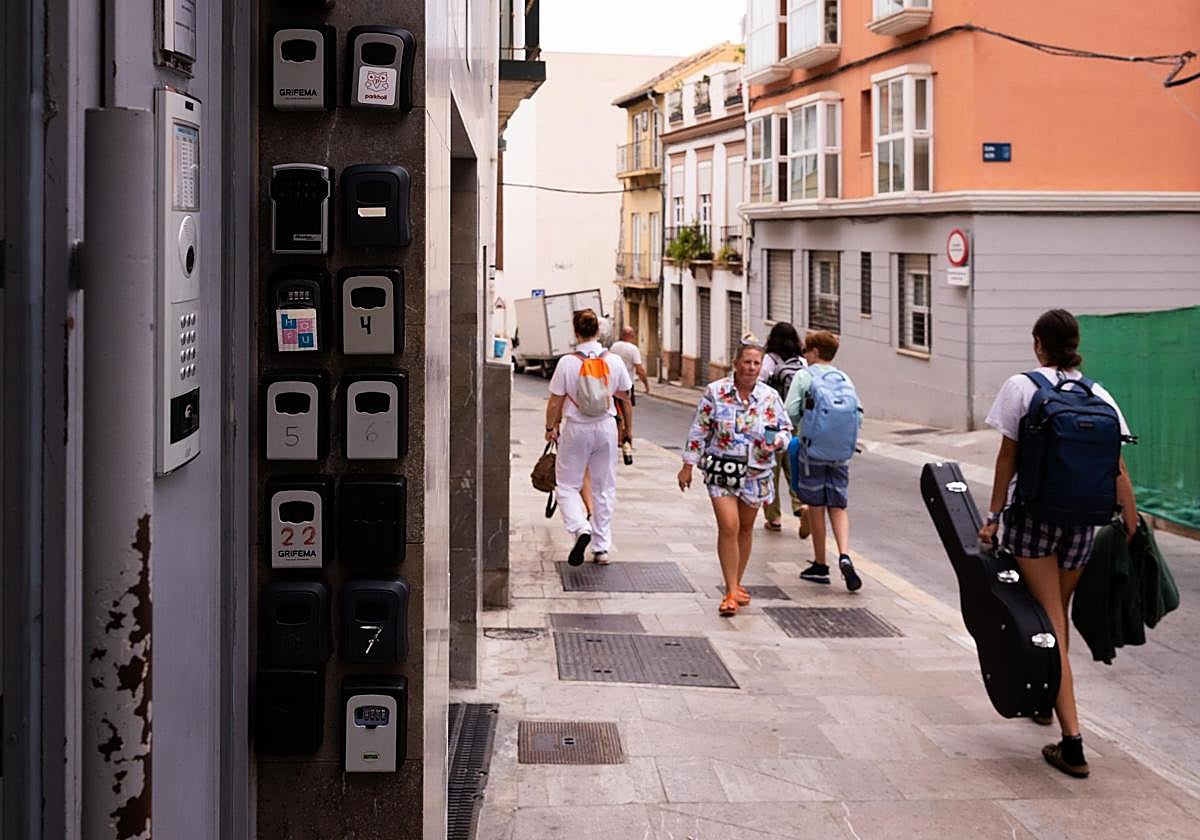National tourist property register goes live in Spain today with only a third of rental properties in Andalucía listed
Government figures suggest that seven out of ten tourist dwellings in the region will have to be taken off the online holiday rental platforms for non-compliance with the new requirement
The 'Registro Único', a new, nationwide, single register of tourist and seasonal rental properties in Spain, promoted by central government, comes into force today with the aim of removing from the market all properties that are not properly listed on the register, although they do have their registration number and legal authorisation to operate with the Junta de Andalucía at the regional level. To add more detail, the region leads the ranking of applications for registration, with 49,397 requests submitted to form part of this new compulsory register in order to continue marketing on the online platforms. Of these, 24,405 still have provisional approval and a further 4,920 have been revoked. The overall figure represents only a third of the total number of tourist-use properties on the regional register with Turismo, which lists 147,000. In other words, more than seven out of ten will be removed from the market of the online holiday rental giants. The Spanish government highlights that Malaga province accounts for the majority of these requests (27,936). This figure is even further away from the number of properties operating and included in Andalucía's tourism register, a total of 85,000 properties.
The Ministry of Housing insists on reminding property owners who market on online platforms that "renting without a single registration number will be illegal", adding that, within hours of this single registry coming into effect, some 215,438 tourist properties have been registered throughout Spain. Of the registered applications, 94,209 have been fully activated, 102,732 have been provisionally activated and 15,275 have been revoked. The ministry states that "the applications are mostly for tourist rentals, a total of 169,908, concentrated especially in the regions of Andalucía, the Balearic Islands, the Canary Islands, Catalonia and the Valencia region."
Confusion
Tourism industry sources agree that the vast majority of property owners have not yet completed this formal procedure, which is done via Spain's association of property registrars, and there is still time to do so. They justify this situation by saying that many of them have had their submitted documentation rejected and many others held back by "the considerable confusion that exists." This state of affairs is further exacerbated by several regional governments' requests to put a halt to this regulation as they view it as encroaching on the powers of the autonomous regions. In fact, the Junta de Andalucía has appealed the imposition of this new regulation.
The association for tourist rentals in Andalucía (Avva-Pro) asserts that "in the big cities there are fewer problems with registering holiday properties. However, in coastal towns, prominent tourist destinations with a large number of second homes and especially rural areas are where serious damage will occur." In this regard, the association criticises the fact that, in rural areas, "serious difficulties are arising due to extremely strict interpretations and inconsistent criteria being set by registrars."
The Junta's regional minister for tourism, Arturo Bernal, predicts that "chaos will ensue, especially considering that there is no provision for inspections or sanctions in the decree that comes into effect." He also warns of the economic impact. In this regard, he refers to some reports that speak of 13.7 billion-euro losses in economic activity nationwide due to the non-registration of 250,000 homes across Spain from now until year end. "If there were 60,000 in Andalucía, extrapolating the data, we could be talking about 3.5 billion euros in restrictions on economic activity."
27,936
applications have been submitted to register tourist dwellings in Malaga province on the new single registry
Regarding the fear that tourist homes that do not have the new single registry number will be considered illegal, Avva-Pro points out that "this single rental registry has no enabling or legitimising nature for the exercise of tourist activity" and adds that "its purpose is merely instrumental and informative in nature, in compliance with EU Regulation 2024/1028, which imposes transparency and data collection on member states regarding short-term rentals."
Regulatory framework
Moreover, Avva-Pro insists that "the legality of tourist rentals does not depend on this registration, but rather on compliance with the applicable, substantive, regulatory framework, which includes regional regulations on tourism that are responsible for establishing the material requirements of the activity, as well as the urban planning rules and limitations derived from the horizontal property regime."
Avva-Pro stresses the message that "no short-term rental units can be marketed through online platforms without the aforementioned registration number, nor with a registration number associated with a different rental category and type. Consequently, such a registration number is a requirement for digital advertising on platforms, but is not a condition for validly carrying out the activity itself."
Assurances
The holiday rental sector gives assurances that the main online platforms have unofficially informed them that, for the time being, they do not plan to withdraw listings with no single registry number, provided they do have the Andalusian Turismo number. This is complicated by the fact that the Ministry of Housing has already published in the Official Provincial Gazette the deadlines and template for platforms such as Airbnb and Booking.com to submit rental data every month through a digital one-stop-shop. The information they must share includes the property's address, the number of nights rented, the number of guests per night and their country of origin.
The Spanish government is focusing on the fact that this new procedure aims to regulate short-term rentals. Minister Isabel Rodríguez claims the need to regulate this type of accommodation in order to "put an end to illegal tourist apartments that force families out of their neighbourhoods, as well as ending seasonal rental fraud that some tenants use to speculate on housing prices."
The report provided by central government also notes that 2,073 applications from Andalucía have been submitted for the single register of seasonal, not holiday or tourist-use rentals, of which 879 have already been approved, a further 964 have been provisionally authorised and 230 have been revoked.

